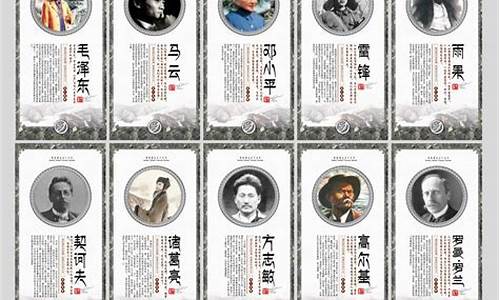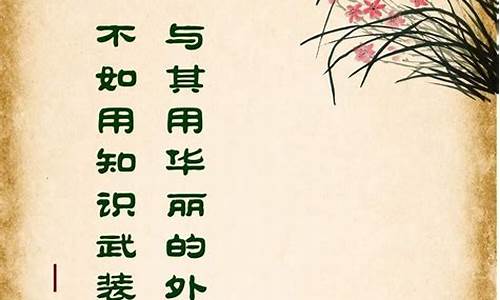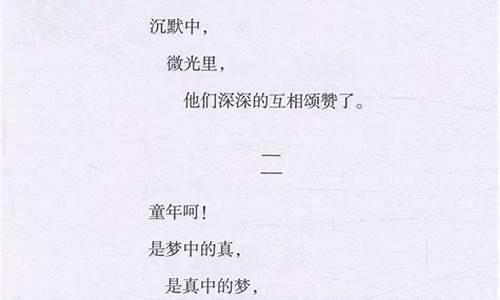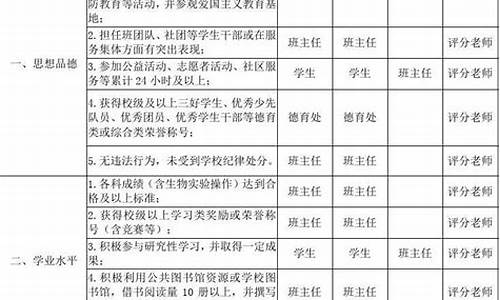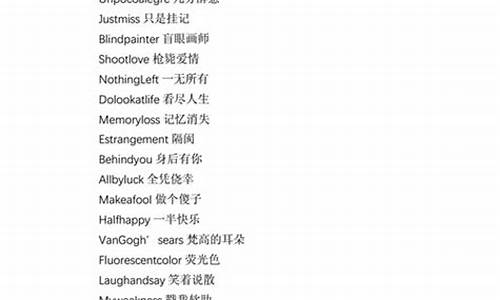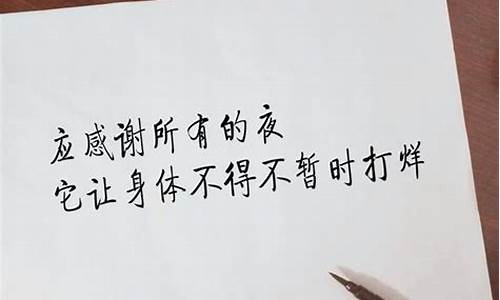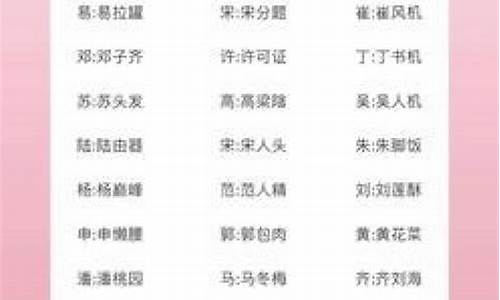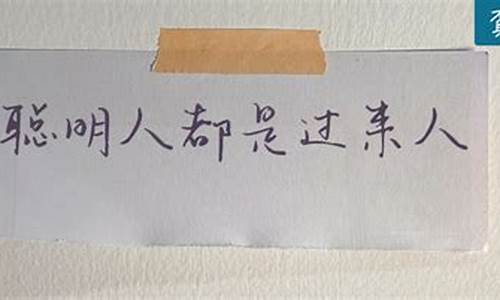no加可数名词复数的句子怎么写_no加可数名词复数的句子
1.no后面一定要跟名词复数吗?为什么?
2.no和any后跟名词是用单数形式还是复数形式?
3.no后面加名词单数还是复数
4.no+可数名词,可数名词用复数还是单数
5.no后面如果接可数名词,则接单数or复数?
6.用no进行完全否定时,其后所加名词用复数还是单数
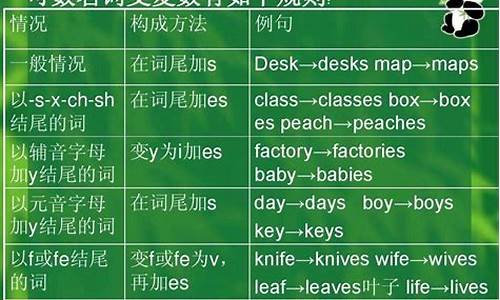
no 后面加可数名词 谓语动词用复数形式。
eg.No students want to go there.没有学生想去那里
each of +复数名词” 的主语是each,谓语动词用单数,意为“每一”
eg.Each of us has a new pen.= We each he a new pen
every总是修饰单数名词,强调每一个,谓语动词用单数。
Neither of+复数名词,谓语应该是用单数的
Neither是指两个事物之间没有一个是
Either of+复数名词,谓语单数
any+复数名词 用在否定句、疑问句中,意为“一些”,主语是复数名词,谓语一定用复数
no后面一定要跟名词复数吗?为什么?
no?和any作为形容词,后面既可以跟复数名词,也可以跟单数名词,还可以跟不可数名词,只不过表述的意思不同罢了。
No?有多重含义——
1、相当于not?any,?not?one/a,意思是“毫无”、“没有任何”、“没有一个”。如:
No?cookies?are?left.?连一块饼干也没剩下。后面跟复数名词,=?Not?any?cookies?are?left.
No?dog?can?be?found?there.?在那里连一只狗也看不到。后面跟单数名词,=Not?one/a?dog?can?be?found?there.
2、相当于not?at?all,意思是“根本不是”或“远远不是”如:
They?are?no?children.?他们绝不是孩子。跟复数名词,=?They?are?not?children?at?all.
He?is?no?fool.?他很精明。跟单数名词,=?He?is?not?a?fool?at?all.
3、相当于hardly?any。意思是“几乎没有”。如:
He?got?there?in?no?time.?他几乎没用多少时间就赶到那里。跟不可数名词,=?He?got?there?in?hardly?any?time.
It's?no?distance?to?the?post?office.?到邮局没有多少路。跟不可数名词,=?It's?hardly?any?distance?to?the?post?office.
Any?相当于?one,?some,?every?或?all。如:
Take?any?book?you?want.?任挑一本你要的书。跟单数名词,相当于Take?one?book?you?want.
Are?there?any?messages?for?me?有带给我的任何消息吗?跟复数名词,相当于There?are?some?messages?for?me,?aren’t?there?
Any?child?would?love?that.?每个孩子都会喜欢它的。跟单数名词,?相当于Every?child?would?love?that.
Give?me?any?food?you?don't?want.?给我你不喜欢的任何食物。跟不可数名词,相当于Give?me?some?food?you?don't?want?接近
no和any后跟名词是用单数形式还是复数形式?
都可以的。
当no后面+复数时,如I he no friends.就是说我没有一些朋友。
但是,当no后面+单数时,如I he no friend.就是说我没有一个朋友,即我一个朋友都没有。(当然,money,tea等是不可数,可以在no后面)。
no后面+单复数是有区别的
no后面加名词单数还是复数
no可跟单数名词,也可跟复数名词。no=not a / any如:I he no brother.= I don't he a brother.I he no brothers.= I don't he any brothers.any 也可跟单数名词,也可跟复数名词。如:There aren't any students in the class room.He is taller than any other student in his class.
no+可数名词,可数名词用复数还是单数
一,no的用法:
no后面既可以加单数,又可以加复数。因为no=not any,所以可以加复数。又因为no=not a,所以也可以加单数。
1,There are no clouds in the sky.
天上没有云。
2,The girl was no beauty.
这姑娘才不漂亮哩。
二,any other的用法:
是指在同一范围内除了某人或某物以外的其他人或事物,any other后跟单数名词,也可以说any of the other+复数名词。如:
1,Tom runs faster than any other student(或any of the other students)in his class.
汤姆比他班上的任何人都跑得快。
2,Shanghai is langer than other city in China.
上海比中国的任何一个城市都大。
no后面如果接可数名词,则接单数or复数?
单数和复数都有,要依据句子意思或上下文来决定,有时还要遵循英语的习惯用法.
这是网上找的资料,参考一下吧.
HAVE/THEERE BE NO+可数名词
本文首发于北京大学出版社《中学英语学习指导》1989年第3期
初中英语课本第二册第4课中,有如下两个句子:
1)It has no eyes and no ears.
它既没有眼睛,也没有耳朵.
2)It has no mouth,but it can talk.
它没有嘴巴,但会讲话.
在动词he之后的“no+可数名词”结构中,该名词什么场合用单数,什么场合用复数?常有学生提出这个问题.
有人认为,既为否定,则说明“没有实物存在”,何所谓单数、复数之分呢?问题在于,这个否定概念首先是建立于“实物”的基础上的.也就是说,当人们提出“否定”之前,必先考虑到“实物”本身,而后才加以否定.因此,该实物的单复数问题,直接反映在说话人的潜意识上,从而影响到他的话语表达.比如,一只茶壶通常只有一个壶盖,一头牛只有一条尾巴,故该名词以单数为宜:
3)The teapot has no lid.
那个茶壶没有盖子.
4)This cow has no tail.
这头牛没有尾巴.
又如,鸟的翅膀是成双的,树的叶片不计其数,则该名词以复数为宜:
5)The bird has no wings.
这只鸟儿没有翅膀.
6)The tree there has no lees.
那边的那株树没有树叶.
上述课文中的两个句子讲的虽是时钟,但是以拟人化的方式描述,所以mouth用单数,而eyes和ears用复数.
再如,普通人只有一个父亲,一般只戴一只手表,因此可以说:
7)I he no father.
我没有父亲.
8)He has no watch.
他没有手表.
但提到brother或sister时,就拿不准了,因为兄弟姐妹的多寡因人而异.此时,用单数或复数,全凭说话人的主观印象.如果他认为某人只有一个兄弟或姐妹,就用单数;如果他觉得某人不止一个兄弟或姐妹,就用复数.于是,以下两句都可以说:
9)She has no brother(s) / sister(s).
他没有兄弟姐妹.
10)The old woman has no child / children.
那位老妇人没有孩子.
至于那些数量不受条件限制的人或物,其单复数可任其选用.例如:
11)We he no egg(s) left.
我们没有鸡蛋了
12)The boy has no friend(s).
那男孩没有朋友.
在there be之后的“no+可数名词”,情况也是如此.例如;
13)There is no kitchen in my house.
我家没有厨房.
14)There are no books on the shelf.
书架上没有书.
用no进行完全否定时,其后所加名词用复数还是单数
两者都可以.具体用单数还是复数,要根据上下文的语境.no后面接单数时,
no = not a , no后面接复数或不可数时,no = not any .如:
There is no book on the desk.= There is not a book on the desk.
There are no books on the desk.= There are not any books on the desk.
There is no milk in the bottle.= There is not any milk in the bottle.
看情况决定,如:
1 - Is there any milk in the fridge? - No,there is no milk in it.(milk,不可数名词,肯定是单数no ==not any)
2 - Is there a boy in the room? - No, there is no boy there.(boy,可数名词单数形式,顺从问话人的意愿 no==not a / an)
3 - Are there any books on Tom's desk? - No , there are no books on his desk.(books,名词复数形式,no==not any)
---------------明白了吗?---------------
声明:本站所有文章资源内容,如无特殊说明或标注,均为采集网络资源。如若本站内容侵犯了原著者的合法权益,可联系本站删除。

